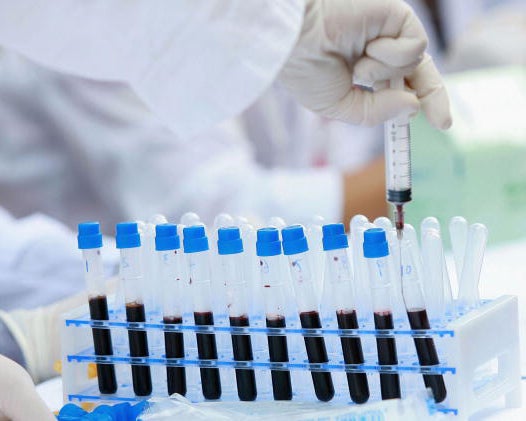HIV positive teenager in remission for 12 years – but is her case a breakthrough or a false dawn?
Despite the extraordinary circumstances, scientists have reacted with caution

It is a case that only a few years ago might have been hailed as a medical miracle. An 18-year-old woman in France, who was infected with HIV by her mother at birth or in late pregnancy, has been living healthily with the virus apparently in remission, despite not having received treatment for 12 years.
The woman had been treated to prevent infection for six weeks after her birth, and subsequently received a cocktail of antiretroviral medicines from the age of three months until her family decided to stop the treatment when she was six years old.
According to Dr Asier Saez-Cirion from the Institut Pasteur in Paris, who presented the case at the International Aids Society’s conference in Vancouver earlier this week, it is “proof of concept” that long-term remission of HIV is possible in children.
But despite the extraordinary circumstances, scientists have reacted with caution and no one is yet claiming the woman might have been “cured”. Why? Because, unfortunately, we have been here before – and been disappointed. Little more than a year ago, leading experts in the global fight to cure HIV spoke of “a body blow” when another patient thought to have been “cured” by very early drug treatment – the so-called Mississippi baby – was found to have detectable levels of HIV in her blood again.
The case proved that the HIV virus may be even more elusive than previously thought, “hiding” in the body undetectable by current tests, but still there, and still capable of replicating again. Yet while there is caution around the new “French patient”, there is also a degree of optimism.
Both cases are evidence that starting on HIV drugs very early after infection can have the previously unexpected benefit of suppressing the virus long-term.
If scientists could work out how this happens, and what combination of drugs works best, it could herald a new dawn for HIV prevention. That is why leading figures in the field say that what’s needed now is wider-scale trials of patients starting on treatment very soon after infection. Such studies are under way in Thailand already.
A “functional cure” means one that would bring HIV to such low levels that people living with the virus would no longer need to take the daily antiretroviral drugs that currently allow millions of HIV positive people around the world to live healthy lives.
However, the early treatment principle seen in the case of the Mississippi baby and the French patient – as well as in another group of patients, known as the Visconti cohort, a group of 14 adults who received very early treatment after infection and after seven years off treatment shown no sign of the virus returning – might have its limitations.
“The challenge of course is that most people are not diagnosed at the point of infection or soon afterwards,” said Yusef Azad, policy and campaigns director at the National Aids Trust (NAT). “Even if we work out how to intervene at that stage, in a way that creates long-term remission of the virus, it is dependent on treatment immediately after infection.”
Of course, understanding how early intervention works to suppress the virus so effectively could lead to vital clues for a more versatile treatment that could be applied at any stage. However, the prospect is still some way off.
Another case of apparent HIV “cure” is that of the so-called “Berlin patient” – Timothy Ray Brown, who in 2007 received a stem cell transplant to treat leukaemia, from a donor with a rare genetic mutation that aided HIV resistance.
However, such a complex and risky treatment is not considered a viable option for widespread use. That is why the attention of many in the field is focused not on the still relatively remote prospect of a viable, global cure, but on new frontiers in prevention.
Post-exposure prophylaxis, (PrEP), the use of antiretroviral drugs in people at risk of HIV infection, has been shown to be extremely effective in preventing the virus from spreading. A major trial in the UK – the Proud study – reported earlier this year that taking the drug cut the risk of HIV infection in gay men considered at high risk by 86 per cent. The drug is already available in the USA, and the NHS is now considering how it could be used in the UK.
Of course, the Holy Grail for HIV prevention would be a vaccine. Scientists are moving closer, with the most striking recent breakthrough coming from the Scripps Research Institute in California, which earlier this year announced success in protecting monkeys against a simian form of HIV with a radically new type of vaccine that prompts an alteration in the DNA to give cells anti-HIV properties.
However, while the drugs can keep the virus at bay, they must be taken continually, at huge cost to healthcare systems around the world. A real cure would change that – and change the world. But until that day, they are the best we have.
Join our commenting forum
Join thought-provoking conversations, follow other Independent readers and see their replies
Comments
Bookmark popover
Removed from bookmarks